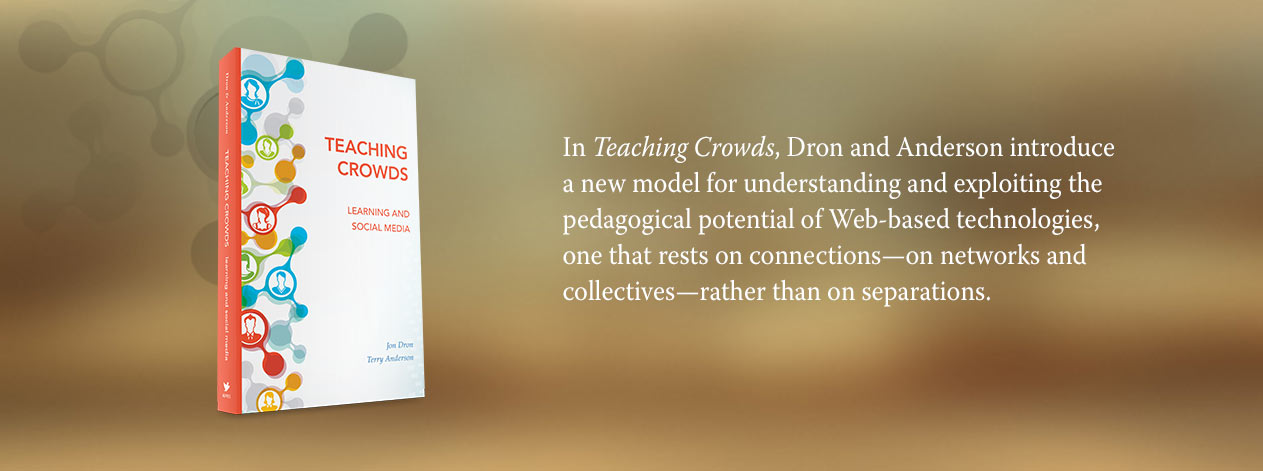An interesting student evaluation of a chapter of our book at http://www.bahula.ca/2017/05/teaching-crowds-connected-but-alone/ which compares our (initially and very deliberately rosy) view of the potential benefits of social media with Sherry Turkle’s cautionary view in her TED talk at https://www.ted.com/talks/sherry_turkle_alone_together. This illustrates one of the risks of reading chapters out of context – we set the scene in a carefully modulated spirit of appreciative inquiry. We do actually approvingly cite the book on which Turkle’s talk is based later in our book, and we agree with many of her points. We are very far from uniformly enthusiastic about the benefits of social media in learning. In fact, we devote an entire chapter to reasons we are extremely cautious. It ain’t what you do, it’s the way that you do it! None-the-less, for all our concerns, I think I am on safe ground in saying that we both (and Sherry Turkle) still see the potential for social media (of the right kind, in the right context, with the right people, used in the right way) to support learning as being extremely high, and that such potential is more often realized than undermined, even today. We believe that, though there are many dangers and reasons to feel deeply concerned about the effects of social media, from Trump to Brexit to the normalization of racism to the alienation resulting from excessive social media use, that the incredible waves of knowledge (and even of falsehoods) that flow and bounce around the world within minutes rather than years has changed the nature of (and needs for) learning utterly, providing ever greater opportunities to grow and learn together. These are not waves that we should or even can resist: they are waves that we need to learn to safely surf. And that’s actually what our book is all about.
